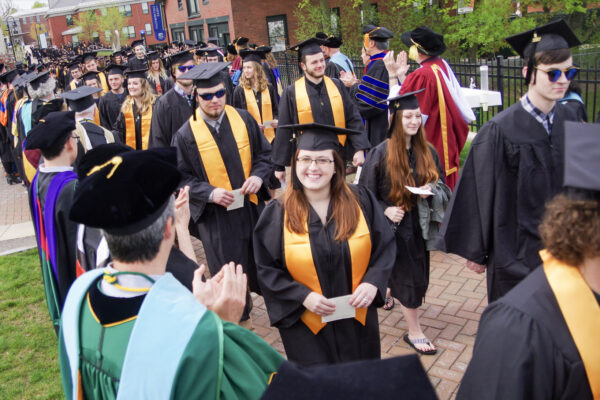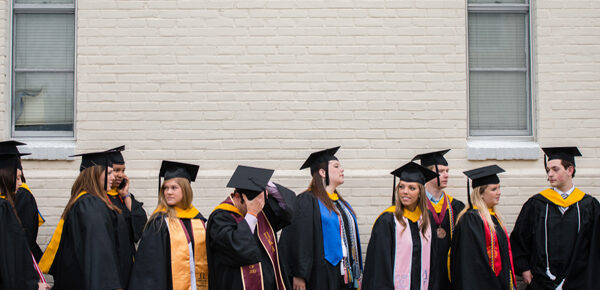Salem State University has made it a priority to increase the chances of success for their Latino students, a demographic particularly at risk of not finishing their degrees. Recently recognized by The Education Trust as one of the top-ten performing institutions in this endeavor, Salem State has used a variety of approaches to provide an environment of support and close the achievement gap.
According to The Education Trust, only 53 percent of Latino students who start college as freshmen at four-year institutions earn bachelor’s degrees from those institutions within six years, whereas 63 percent of white students do. As a degree is increasingly necessary to obtain a high-paying job, helping students complete college can contribute to their personal success and also to the country’s economic competitiveness.
Recognizing this, and that Latino students make up 17 percent of its population and growing, Salem State committed to better serve this population of students.

Between the years of 2012 and 2016, the university doubled its number of Hispanic/Latino faculty. Key student service areas were staffed with multilingual staff members, and opened the new Student Navigation Center to serve all students. Student organizations such as the Latin American Student Organization and initiatives such as the Latino/a Student Success Task Force help minority students feel at home at their institution.
But the work is not over.
“As we celebrate this recognition and the efforts that have gone into achieving it, we also recognize that there is much more work to be done to drive the success of all of our students and close the achievement gap that exists for students of color,” said Salem State executive vice president Scott James. “Student success is a top priority at this institution, and this report is an encouraging indicator that the ongoing efforts of our faculty, staff and students are building results and momentum.”
—Carly O’Connell
At a Glance
ACE Member Institution: Salem State University
Goal: Provide the tools for Latino students to succeed and close the graduation gap.
Methods:
- Growing the number of faculty and staff members of color
- Having multilingual staff members available in key student-service areas
- Opening the Student Navigation Center, a one-stop-shop to assist with billing, financial aid, registration, and other matters related to the business of being a student
- Support from organizations such as the Latin American Student Organization and the Latino/a Student Success Task Force
Become a member: As a member of ACE, you join nearly 1,800 organizations that collectively promote, protect and advocate for students, faculty and administrators in higher education. ACE is the most visible and influential higher education association in the nation, and we are at the center of federal policy debates concerning legislation that affects campuses across the country. See more on the ACE website.
If you have any questions or comments about this blog post, please contact us.


